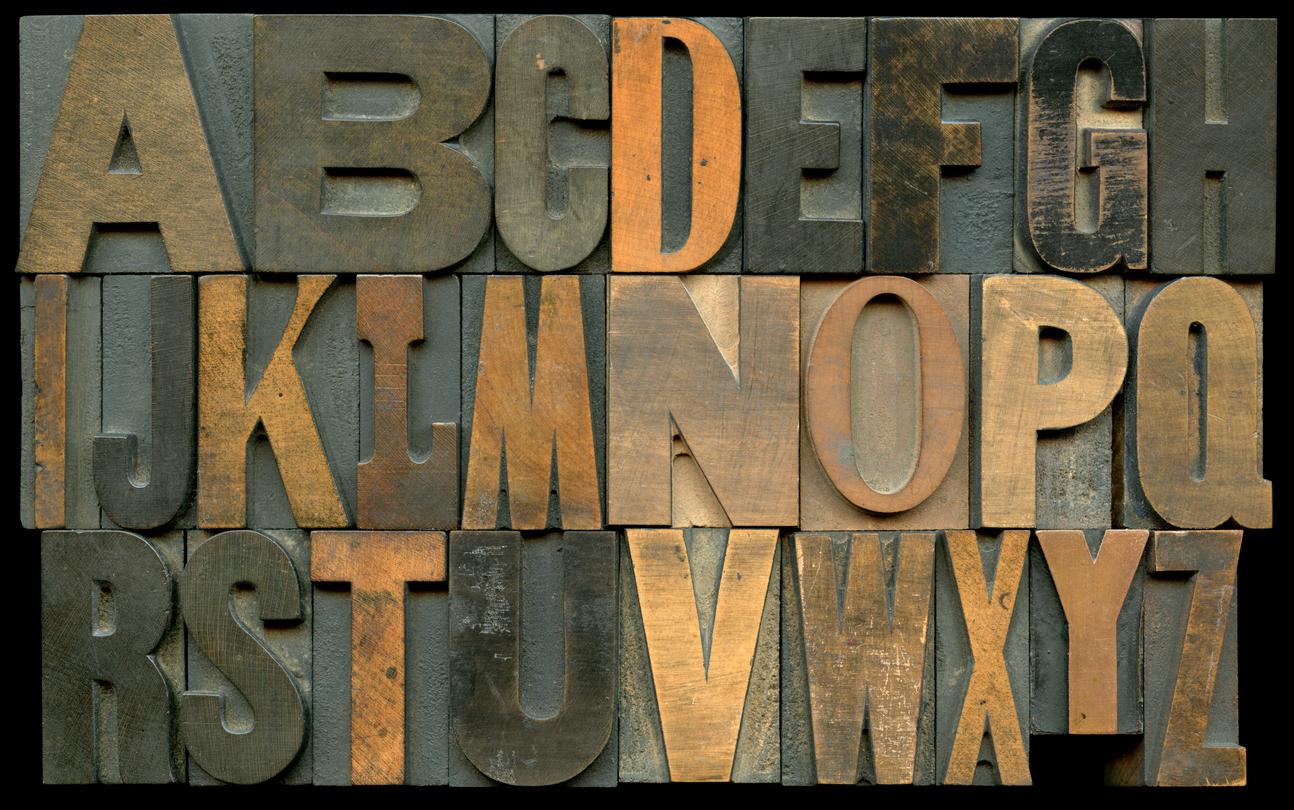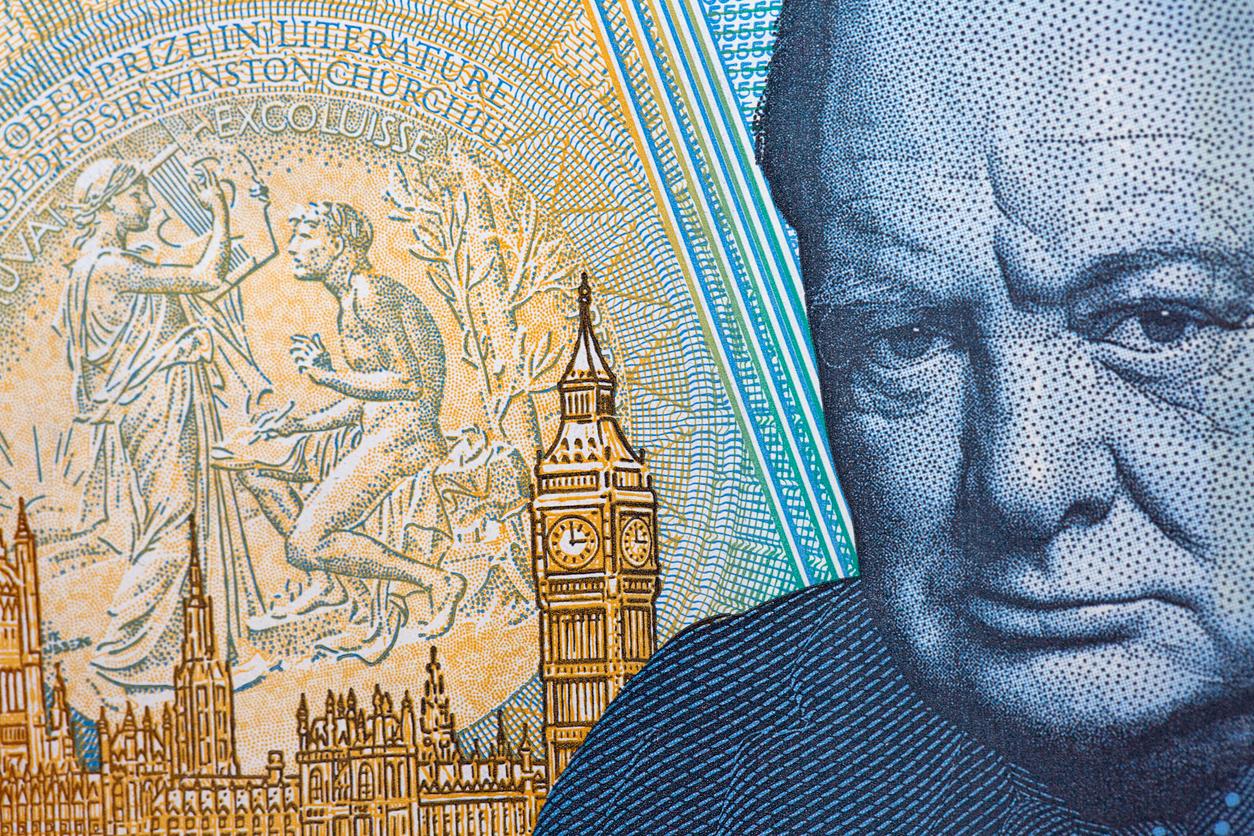7 Weird Facts About the English Language That'll Blow Your Mind
Updated April 19 2019, 9:25 a.m. ET

Did you know that we named the color "orange" after the fruit, or that the word "uncomfortable" didn't exist before Shakespeare? How about the fact that Old English had a grammatical system with three genders: masculine, feminine and neuter, the way Dutch, German and Swedish do today?
English has a fascinating history full of interesting facts that might come in handy on an upcoming trivia night or, at the very least, provide a new perspective on a language we speak and write constantly, but often take for granted.
Keep scrolling for some interesting facts about English.

1. Shakespeare invented so many of the words he wrote, and now they're totally part of everyday speech.
Imagine if I sat here expecting you to understand words that I invented? Well, the elusive bard known as Shakespeare did exactly that in his 37 plays and hundreds of poems. In fact, we owe over 1,700 words to his oeuvre.
"Addiction," "assassination," "bedazzled," "fashionable," "manager" and "uncomfortable" are just a few words we wouldn't have if he hadn't compared his lover to a summer day.
In related Old English news, how weird is it that "thou," which we think of as formal, was actually the chummy version of the more polite "you" back in the day?

2. SOS doesn't "stand" for Save Our Souls or Save Our Ships.
Let's talk about backronyms. You might be familiar with their cousins, acronyms, which are abbreviations formed with the initial letters of other words that are also pronounced like words themselves. Think: NASA, ASCII or OMG (more on OMG later).
Backronyms, on the other hand, are cases where an acronym or abbreviation can be squeezed into an already existing word, either to make the name more memorable or create a fun explanation for it. "SOS" is one of these. Rather than stand for "save our souls," SOS was chosen because its letters were easily transmitted and recognized in Morse code. It wasn't until later that folks decided "save our souls" filled the abbreviation out neatly.
Other examples of backronyms are AMBER Alert (America's Missing: Broadcast Emergency Response), SAD (Seasonal Affective Disorder, or Depression), and APGAR (Appearance, Pulse, Grimace, Activity, Respiration), which comes in handy when measuring the physical condition of newborns. It was actually named for anesthesiologist Virginia Apgar, who developed the scoring system.

3. English is the language of the skies.
Fact: No matter which country you're flying to or flying from, all aviation personnel — pilots, flight crews, and air traffic controllers — must pass a mandatory English proficiency test.
English actually became the standardized language of air travel because the deadliest plane crash in history, Tenerife's airport disaster, was caused in part by language confusion.
But Aviation English isn't exactly the English we speak day-to-day. It's more like pilot-code that happens to be in English, with words like "roger" ("understood"), "affirm" ("yes"), "approach" ("coming into land"), "standby" ("please wait") and of course, the dreaded "mayday" (the distress call that — fun fact — comes from the French "m'aider," or, "to help me").

4. "The quick brown fox jumps over the lazy dog" uses every single letter in the alphabet.
If you're interested in typography, you've probably seen that this is the sentence most font creators use to show off each of their letters. It's actually been used to test out typing equipment since the late 19th century.
Sentences like these are called "pangrams" or "holoalphabetic sentences." The most challenging ones to come up with use the fewest extra letters possible. Some examples are "Waltz, bad nymph, for quick jigs vex," which has 28 letters, and "The five boxing wizards jump quickly," which has 31.

4. Some English words mean what they mean and the opposite of that.
Contranyms are words with contradictory meanings, also known as antagonyms, auto-antonyms and self-contradictions. Though they don't only occur in English, they're still pretty cool and often occur due to slang usage.
Examples include "bomb" (success; failure), "fine" (superior; acceptable), "execute" (kill; start), and "overlook" (watch closely; fail to notice). Other contranyms are "peruse" (skim; examine closely), "sanction" (to permit; to restrict), and "trying" (hard to endure; making an effort).
And if you think these cases are interesting, in 1989, the Oxford English Dictionary listed 430 different meanings for the word "set."

5. "OMG" and "LOL" are way older acronyms than you think.
While these days "LOL" means "laugh out loud," back in the 1960s, an LOL was a "little old lady"! No kidding. Now just picture little old ladies laughing out loud.
And while we might think of "OMG" as a product of internet or texting abbreviations, the first recorded instance of the acronym was in 1917, when Winston Churchill used it in a letter. Other words that are much older than you might think are "cooties," "chowhound," and "gaga."

6. People agree "whatever" is the most annoying word in the English language.
Is there a word that makes your skin crawl whenever you hear it? According to a 2016 poll by the Marist Institute for Public Opinion, "whatever" was voted the most annoying word in the English language for the eighth year running.
Other contenders for the category of conversational words and phrases that bug English speakers are "no offense, but," "ya know, right?" and "I can't even." 8 percent of people said English could really stand to retire the word "huge."

7. "Geoluread" was the original name of the color orange.
ROYGBIV was almost RGYGBIV, which really doesn't have the same ring to it. Orange you glad it's not?
Until the 16th century, English speakers used the word "geoluread," literally "red-yellow" in Old English to describe the color. But when the English-speaking world became exposed to the fruit, they renamed the color after it.
Speaking of orange, it's something of an old factoid that the word has almost no perfect rhymes. The only exception in the 20-volume Oxford English Dictionary is "sporange," a very rare alternative form of "sporangium," which is a botanical term for a part of a fern or similar fern-like plant.